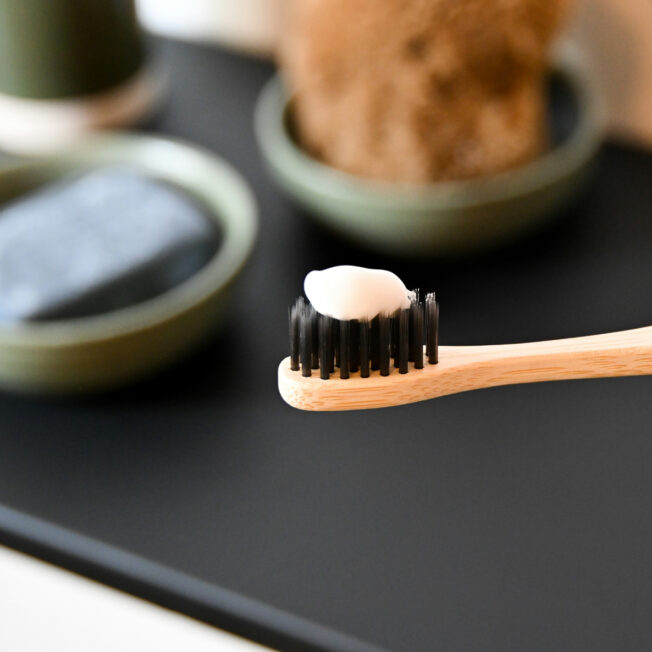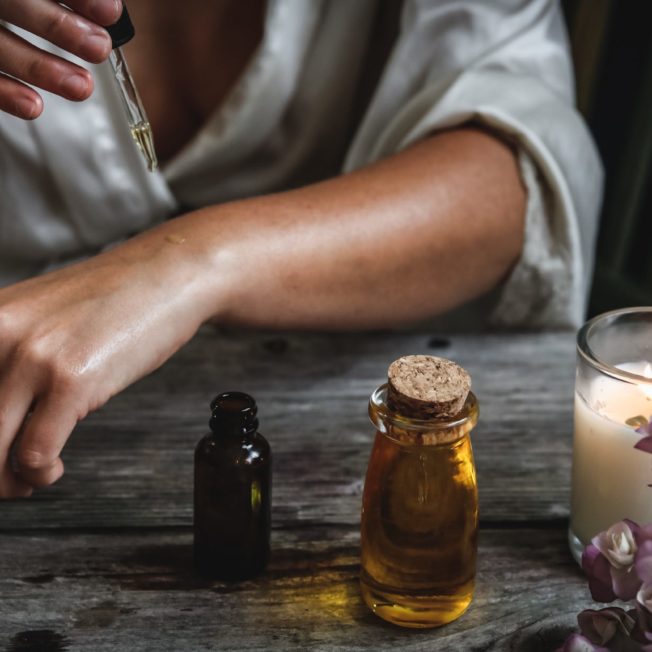As the seasons change, our bodies naturally adapt as the temperatures drop and humidity is reduced. So at this time of year, we not only feel colder, but we’ll notice changes within ourselves that reflect the temperature surrounding us. For example, in the winter, we might find our face and hands particularly parched and experience the often uncomfortable sensation of dry, tight, or flaky skin. But how can we combat these seasonal changes to our skin and body?
How does the winter weather affect our skin?
For many in the Northern Hemisphere, this time of year brings forth a drop in temperature no matter where we are located. Outside, we’re exposed to more frigid temperatures, a decrease in humidity, and dramatic changes in temperature as we travel indoors and outdoors. When we experience this drop, our bodies will adapt to the temperature to protect our organs and conserve heat. Our bodies accomplish these processes by reducing blood flow to the skin, keeping our blood toward the innermost part of our body. Unfortunately, our skin also can become devoid of moisture, which may cause many of us to experience dry, flaky skin that can border on painful, depending on the level of dehydration.
The winter can be especially difficult for individuals who regularly experience various skin conditions, including rosacea, psoriasis, and eczema. Cold, harsh winter temperatures are at the root of flare-ups of these skin conditions, including rosacea. For psoriasis, experiencing a decrease in exposure to sunlight heightens our skin’s sensitivity, rapid temperature changes can worsen eczema flare-ups, and the dryness of the winter can worsen seborrheic dermatitis.
How do our hydration routines change?
Due to the drop in temperatures during the winter season, we often misunderstand how much we need to hydrate. It’s very common for people to experience heightened levels of dehydration during the winter months because they forget to drink enough water. Even if it’s not sweltering hot and we’re not feeling extra sweaty in the sun or experiencing thirst, we still need the same amount of hydration all year round. This lack of hydration manifests in several ways, including physical symptoms like dry lips, mouth, and skin, headaches, fatigue, and low blood pressure.
For our bodies to generate heat to maintain a healthy body temperature, we need to ensure that we’re properly nourished and hydrated. Our bodies can properly prevent hypothermia and keep us warm by remaining hydrated, whether from water, produce soups, or other fluids.
How can we combat these changes?
In addition to ensuring that we’re paying attention to both our nutrition and our hydration, there are several steps in our routines that we can adjust and products to avoid so as not to exacerbate any symptoms.
Long, hot showers may feel nice this time of year, but they tend to dry out our skin. It’s best to reduce the length of your showers to avoid overwashing, which strips our skin of its natural oils. Speaking of showers, trying to avoid rough materials to cleanse the skin, opting for lukewarm water, and moisturizing after you’re done washing up may be the most effective method. Applying lotion to your skin fresh out of the shower (after you pat yourself dry) can help trap moisture in your skin when choosing products to put on your skin–or even things like our detergents–avoiding fragrance when you can is beneficial too. For some, fragrances can be extra-drying on the skin.
It may seem simple, but avoiding exposing our skin to frigid temperatures can cause damage to our skin, including worsening any skin conditions we may have. If you’re going outside, protect your skin from the cold temperatures and wind by covering as much skin as possible with clothing and using petroleum-based lip palms and ceramide-based creams. Protecting our skin from the sun all year round is also paramount. Even during the winter months, SPF is necessary, as overexposure to the sun and UV can cause damage.
We should also try to avoid uncomfortable fabrics, including wool, not to scratch our skin to cause further irritation, and opt for a humidifier during the cooler months to help replenish the top layer of our epidermis to combat the dry air in our rooms to pull the moisture from our skin.

















